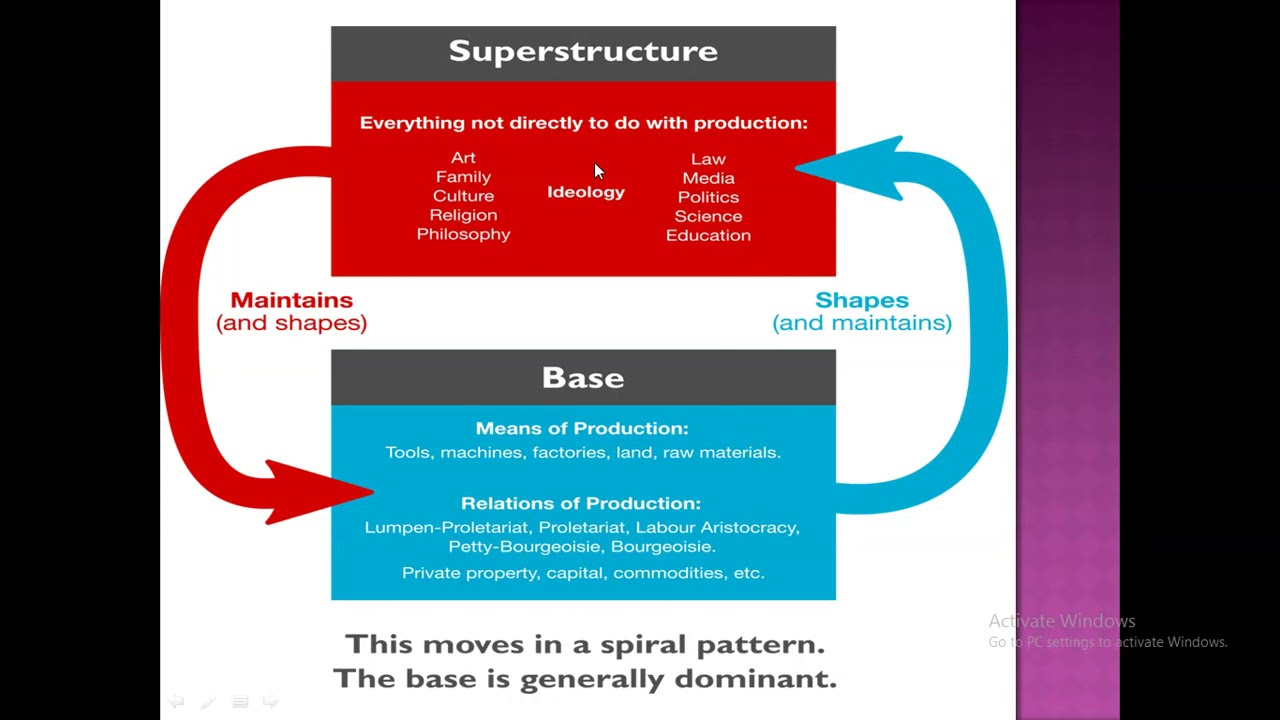I am in higher level education in the public university system. I used to view academia as a source of hope in society, and perhaps a progressive institution in someways, or some kind of source of hope with their supposed focus on science and research. After some years here, this “image” I had of academia has been shattered.
What are your perceptions of academia and research institutions, as Marxists?
While studying (sociology and politics) my lecturer told me a time they where commisioned to do an investigation into heroin users in Glasgow and come back with reccomondations for policy.
They go and interview 100’s of people, conduct experiments, come back and tell them
‘we should legalize drugs and setup safe consumption rooms in order to reduce harm as much as possible’ (Glasgow has some of the highest rates of drug deaths in the world for context)
They tell her ‘we dont like your results, we wont be pursuing any of your reccomondations unless you can make it say that we need to criminalize them’
Anyway, academia is mostly just a way for a company to advertise itself now a days. It works by only things that make profit and make company/politician look good will be funded; Academia is mostly compromised in the upper echeleons of it, with many well do-ers and intulectual energy being wasted.
The role of academia under any regime of political economy is complex because there will always be incentives to defend the system in place while the standard of seriousness can’t just make it easy propaganda for the ruling class.
The easiest position for an academic to have is to criticise without opposing: being critical is a way to reinforce something (hence why communists encourage self-crit), only by actively opposing something you can destroy it.
I’m a horticulturist. My university is completely coopted by the largest agribusinesses in the region. Our buildings, our grants, the consulting that underpaid staff do on the side- it’s all tied in some way to major corporations and the admins setting the curriculum are all directly paid by them. As a result, none of the natural science courses have any kind of radicalism or actual environmentalism to them. They heavily push neoliberal solutions to systemic problems that they refuse to identify as such. The research is guided by corporate interests and whims, and if it identified them as the people directly destroying the land here then I have no doubts it’d be suppressed and the researchers responsible purged. The product of that research is therefore how best to abuse a cow and how to get the most wheat out of a plot of land in the shortest amount of time.
My spouse was taking animal science classes, teachers saying things like, “The way the system works is pretty bad for the animals and the people who work with the animals… but there’s nothing to be done about it.”
My spouse standing there in a barn outside of the main campus thinking/saying out loud, “But here is where we’re supposed to figure out what’s wrong and how to do it better…”
Day 2 of the revolution, after all of the hospital administrators are shot in the stomach and left on the ground, all of the liberal academics are going to be made to write “If education is not liberating, the dream of the oppressed is to become the oppressor” 100 times in front of their class. This is the happybadger promise.
In as few words as possible: U.S. academia functions as an MLM* scheme where your best career prospect after getting out will be in academia, preparing further students to leave academia only to return, ad infinitum.
Except for STEM degrees. Then you might be able to get a job for the military industrial complex.
Almost no one I know who finished university wound up doing the kind of work they studied for. One’s in healthcare. The rest are still doing odd-jobs or wound up back in academia.
*MLM = multi-level marketing, not Marxist-Leninist-Maoist
In as few words as possible: U.S. academia functions as an MLM* scheme where your best career prospect after getting out will be in academia, preparing further students to leave academia only to return, ad infinitum.
Yup. Graduate students are expected to do so much unpaid work, at least here in Canada. Not just that, but we (at least in my program) still pay tuition despite not taking courses. We constantly do unpaid work for our own (or our supervisor’s) research. We pay out of pocket to present work at conferences. We pay thousands of dollars to publish our work. We have to beg and grovel for the chance to get funding, and the funding system hasn’t changed scholarship amounts in over 20 years. All the presentations, publications, funding applications, etc. are just fodder for your CV, so you can have better odds at doing more presentations, publications, and funding applications.
It’s such a rigged system.
*MLM = multi-level marketing, not Marxist-Leninist-Maoist

Honestly, I wouldn’t be that opposed to having to stay in Academia and just do research, if the entire institution and system around submitting research wasn’t such a corrupt pile of shit. I honestly fucking love doing research, even in my free time, I always have a million tabs open, always trying to read new stuff. Just can’t stand the elitism and classism in Academia. Wish being an independent researcher was a more realistic thing.
Its another tool used to reinforce/perpetuate the system that it resides within.
You’ll find classes that might be able to fly under the radar and professors/instructors that can get away with injecting some more radical anti establishment ideas into a class but for the most part… its just another means of reproduction.
hellscape
Palo Alto by Malcolm Harris covers the creation and life of Stanford University and its role in Colonialism (and its Colonial roots). It’s a hella long read but great at showing you that Academia is a pivotal arm upholding Colonialism and the Bourgeoisie.
I’m currently halfway through this book and I would highly recommend it.
btw for all, Chunka Luta Network library has the text and the audiobook available https://mega.nz/folder/cuMwjRyK#eDPayQSdYFwaCh9qr8zzPw
I am the benefactor of this system, I grew up poor, child of an immigrant (and one US American), I busted my ass studying (mostly because I am a bookworm by nature, I can read 8 or 10 hours in a row by accident) and even though I went to a community college at first, I was given a space to transfer and ended up in the Ivy League. They are all progressive on the outside but reinforce your “superiority” and so many people actually believe they are superior beings (even though most pay their way in and can afford pricey tutors for all their classes). My professors were mostly all amazing and brilliant. I have a degree of economic privilege that I feel is awarded to me due to the connections from the system.
I still believe that the entire system is bullshit and needs to be torn down. Education frees the mind and the soul, but to gatekeep this education is to stay within the elites and a few choice poors elevated as the “hyper-competent managerial class” is still a shitty system. I was awarded a fancy trinket for my academic excellence and I sold it to some rich kid that wanted it and donated that money to give to South American charities.
Gosh, there was an unhoused man in my institution, sure he didn’t have a pleasant odour, and the police were called I presume for safety reasons. I wish I could’ve told him to nap somewhere else, since he was by the elevators in a high-traffic area.
The disdain for non-academics is disheartening.
Of course his kind need to go somewhere else… a facility that can grant him emergency housing and a warm shower. Treat him for physical and mental issues, help him with substance use disorder (if needed), figure out his employment situation and education/skillset. Set him up with a job and given proper housing which he will either rent (up to 5% of his paycheck) or find out how he can own a home. Ideally in a halfway housing community that will check up on his progress from a victim of capitalism to a thriving worker. Then permanent housing can be arranged.
Yes, what you’re saying is completely true. Here I believe those services are overloaded with additional resources being allocated. Still, there would be something for those who want it.
It was more the derision by peers and the cops I took issue with.
There was a time when academia was heavily socialist until the early 70s or so in the West. It’s the one institution that needs to be brought back to our side before a revolution can succeed. Feudal, liberal, and fascist governments were afraid of universities until recent times when it got defanged.
It’s the one institution that needs to be brought back to our side before a revolution can succeed.
I don’t see how that will be possible.
Learning, thinking, and research often leads to communism as a natural endpoint regardless of discipline. I’ll admit that we don’t have a theoretical basis on how to make universities centers of socialism once again, but it’s inevitable that it will happen due to the nature of the institution itself.
It’s the same as the solution to everything else. Workers need to organise. Including workers in HE. It’s a dialectic. Once an organised/ing HE sector sees others organising, they’ll start to ask questions and those who keep their eyes open will feel empowered to arrive at the conclusions that material reality is pointing towards.
The institutions will be easy enough to dupe because in the short term, they will be hopeful at the fame and public support that their radical academics bring to the college/university.
Then it’s a question of whether the other organising workers are achieving enough to support their radical academics so they don’t get targeted and fired. And whether those academics start to include the working class in their institutions (or continue to gatekeep).
I don’t see it as one coming before the other. They’ve both got to happen at the same time. Mental conceptions can only progress so far under given relations and forces of production and vice versa. If the academics aren’t there to push the mental conceptions of the possible, the workers who aren’t paid to think in big pictures will struggle to conceive of the new world.
It’s not impossible to have a revolution without an academy. But the revolution needs theorists and most of those are academics. They just need to be brought back down to earth, which will happen once enough other workers organise.
It disappoints me to no end. My institution is not prestigious, when I attend seminars or lectures (typically only advertised for graduate students or faculty) the fawning over speakers from prestigious institutions I find a bit abhorrent.
The questions asked by the audience are self-satisfying ‘low-balls’ more for hoping to please the speaker & be seen than genuine intellectual curiosity.
As well, I understood I was mistaken when I thought academics were cool for being reserved in their statements.
I still appreciate it, and even asking my own professors questions in smaller-sized classes, which are considered challenging are then skirted without engaging in any way.
This as well as other interactions led me to understand much of ‘reservedness’ in answering question by academics has reputation in mind. Speaking from an adjacent field or attempting some synthesis in dialogue where the academic has less authority is met with resistance.
As well, there seems to be no praxis of any kind. Not praxis as in protesting and organizing, simply making acknowledgements of historical events in the pursuit of academic integrity is discarded.
Then, the kind of knowledge obtained and developed by academics is genuine, there is useful stuff there and it is toothless. It makes no considerations to the world outside, rather the ivory tower is front and centre.
I think, “how can they ignore entire regions of the world or centuries of history?” In the case of natural sciences, incl. statistics. I keep thinking, if the context was given, which I have reason to believe some professors know, it would amend the confusion amongst my peers.
tl;dr mao seems to be correct with his ideas about intelligentsia
Can you tell me more about Mao’s ideas about intelligentsia?
Some selected quotes, he mentioned himself thinking like a petty-bourgeois intellectual during his years of study. The following quotes are from Talks at the Yenan forum on literature and art on May 1942.
Here I might mention the experience of how my own feelings changed. I began life as a student and at school acquired the ways of a student; I then used to feel it undignified to do even a little manual labour, such as carrying my own luggage in the presence of my fellow students, who were incapable of carrying anything, either on their shoulders or in their hands. At that time I felt that intellectuals were the only clean people in the world, while in comparison workers and peasants were dirty. I did not mind wearing the clothes of other intellectuals, believing them clean, but I would not put on clothes belonging to a worker or peasant, believing them dirty. But after I became a revolutionary and lived with workers and peasants and with soldiers of the revolutionary army, I gradually came to know them well, and they gradually came to know me well too. It was then, and only then, that I fundamentally changed the bourgeois and petty-bourgeois feelings implanted in me in the bourgeois schools.
On the behaviour of petty-bourgeois intellectuals.
The human nature boosted by certain petty-bourgeois intellectuals is also divorced from or opposed to the masses; what they call human nature is in essence nothing but bourgeois individualism, and so, in their eyes, proletarian human nature is contrary to human nature. “The theory of human nature” which some people in Yenan advocate as the basis of their so-called theory of literature and art puts the matter in just this way and is wholly wrong.
On working with petty-bourgeois ideology, I think I was like this initially when I joined my org, I thought to prescribe the lessons I learned in academic institutions.
An ideological struggle is already under way in literary and art circles in Yenan, and it is most necessary. Intellectuals of petty-sour dis ays, i elving tubbary y ta aristil ways, to project themselves and spread their views, and they want the Party and the world to be remoulded in their own image. In the circumstances it is our duty to jolt these “com-rades” and tell them sharply, “That won’t work! The proletariat cannot accommodate itself to you; to yield to you would actually be to yield to the big landlord class and the big bourgeoisie and to run the risk of undermining our Party and our country.” Whom then must we yield to? We can mould the Party and the world only in the image of the proletarian vanguard.
This one is from his selected works. Here is a link.
The intellectuals often tend to be subjective and individualistic, impractical in their thinking and irresolute in action until they have thrown themselves heart and soul into mass revolutionary struggles, or made up their minds to serve the interests of the masses and become one with them. Hence although the mass of revolutionary intellectuals in China can play a vanguard role or serve as a link with the masses, not all of them will remain revolutionaries to the end. Some will drop out of the revolutionary ranks at critical moments and become passive, while a few may even become enemies of the revolution. The intellectuals can overcome their shortcomings only in mass struggles over a long period.
That’s fantastic, thank you!
fr fr no cap

While these institutions can be progressive and may seem to foster that “unlimited freeze peach”, they also function as businesses who want to attract as many intellectuals as possible with the hope of boosting their reputation.
As a whole, they form the intellegentsia that shape and steer our culture. I wouldn’t say they’re the sole dominating force of the cultural hegemon, but I think they play a very important role in manufacturing consent, under the guise of the scientific method ™. I don’t doubt the ability to find purity in any research program, but more often than not those that are directly applicable to society (so maybe not the string theory department) can be weaponized to influence public opinion. See how institutions influence the meat/factory farm industry, as an example.
Considering these elements, it isn’t suprising that academics who are dissenters against the status quo will likely have their career terminated (at least in the west). Take a look at David Miller in the UK.
Alongside the prestige and allure of many scientific journals, academics also talk of the “publish or perish” mentality. Now, I don’t know if this is still a strong sociological phenomena, but everyone I know with a PhD or doing one who want to pursue academia really submit to that belief.
There has also been frequent news of academic fraud, or exposé of academic journals being extremely careless with what they publish.
With all of this in mind (I’m sure I can think of more), the “image” I had of academia has also been shattered. I’ve always known it is imperfect, but it is not the safe haven it paints itself to be. With that being said, I know many academics who mainly teach and seldom publish and who are great people. Many modern Marxists whose works I enjoy reading on MR also have a position in academia. So it’s not all that bad I think.
I think it’s hard, because the farther I get into my academic career, the more elitist it gets, and the more “pay to play” it feels, like it’s just made for rich kids. I got into my program on a 75% merit based scholarship, but then my PI started setting me up with all these conferences to submit our papers to, except no one told me that I need to be the person fronting these several hundreds of dollars for registering papers that the school says they will pay me back “if funding permits” lol, what a joke. It feels like an institution that exists only to be accessible for the wealthy, despite me fighting my way up the ladder tooth and nail.
Complete agreement here comrade


The illusion was merely broken…
That being said, we all sometime’s forget this lil rule…
Sometimes good, sometimes bad. Profit motive for research bad. Being desperate to find positive results so you can get published at all and advance your career bad. Paywalls bad. Liberally motivated research bad. International cooperative enhancing of knowledge base of humanity good. Individual academics generally neutral to good (just the actively evil ones get paid a bunch by the Koch brothers to appear on TV and say shit like “well, the science isn’t in yet”).
I think broadly, I like individual scientists and the “idea” of academia good, but the system is designed in such a way that you can only really do it as a career if you reify current structures. Even something like “economics” could be good. It’s not, but it could be.
But of course I would say that with an academic background. Most of my friends are academics of one sort or another.
Remove the elitism obviously.
Just private companies out to make a profit churning out employees pre trained to generate profit for private interests.
I had that same view until i actually spent a few years in the academic system. That shattered my illusions and left me very cynical about the whole institution. Even in my STEM field academia was just being used as an auxiliary to the private sector with which universities are inextricably intertwined. And more than the structure of the institution itself i was disgusted by the types of people in it. Perhaps this is worse in STEM but the kinds of people i was surrounded by were some of the most unpleasant i have ever interacted with.
Students doing “proper” research don’t care about the outcome, they’re just doing it to publish something and have it to their name. They think it’s required to go on to the next stage for your doctoral, or they think it will command them a higher salary in the industry. That’s not how it should be. I’m going to propose an ambitious project and I’m 99% sure will be rejected, because institutions don’t have profs who can “guide” people for actually engaging work, even though the “guidance” that they give is utter trash because they literally couldn’t care less about the research themselves. Academia feels like a career path where you go to get snug and settle for a smaller salary than the industry but benefit by having job security through publishing pseudoscientific bs every few months.














